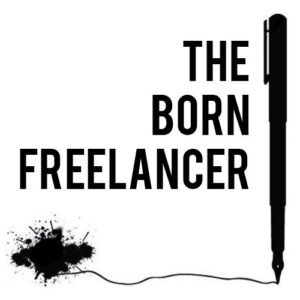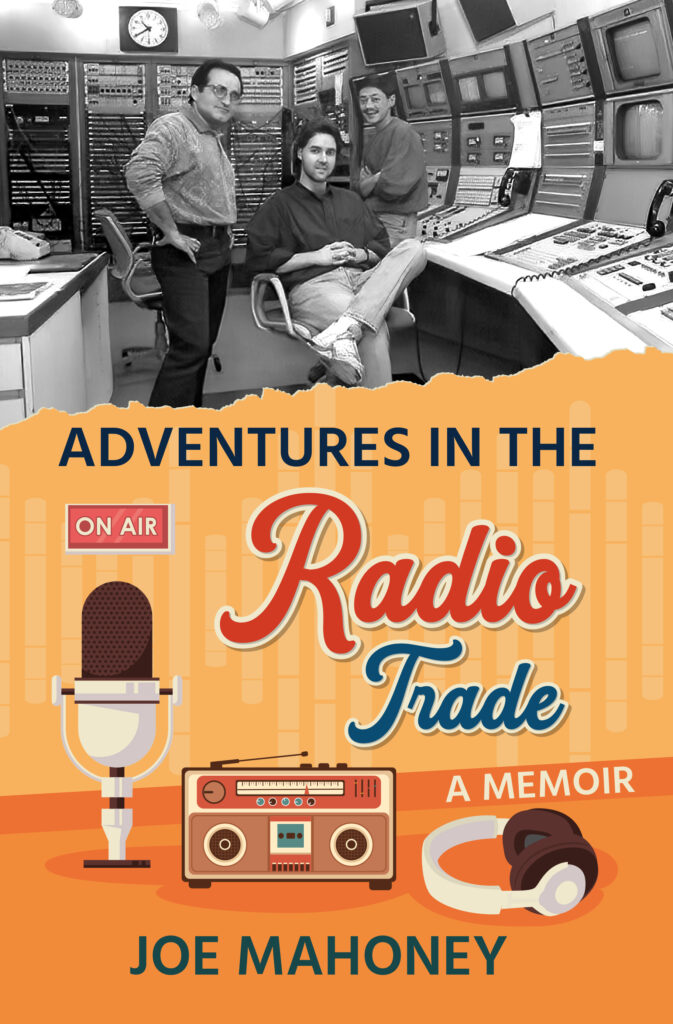The Born Freelancer Speaks Out on Speechwriting
This series of posts by the Born Freelancer shares personal experiences and thoughts on issues relevant to freelancers. Have something to add to the conversation? We’d love to hear from you in the comments.

Looking back over my 150 posts, there’s one potential profitable revenue stream for freelance writers that I’ve not yet discussed:
Speechwriting
I won’t presume to tell you how to write a good speech. If this interests you, there are relevant books at your public library as well as online resources and continuing education courses available through your local community college.
What I will do today is present some of my top tips and thoughts based upon my own experiences. I hope they will provide you with enough motivation to pursue the subject more thoroughly elsewhere.
Who needs a speech?
Who needs a speech? Everybody (sooner or later)!
Think of any business, organization or public individual. At some time they will need to make a speech. Maybe live, maybe on social media. A select few will insist upon writing their own. However, as most people find speech-making scarier than the prospect of death, you can imagine that writing their own speech is a task most will wish to delegate.
That’s good news for you.
The trick for a successful speechwriter is to create a recurring relationship with clients who have ongoing speechwriting needs. The best paying, corporate clients, will be able to afford the best speechwriters and consequently the competition will be fierce. But there will be many other potential clients, from charities and non-profits to local politicians and wedding planners, who may have less expansive budgets but who could remain a constant revenue stream once you have proven your talents and reliability.
Getting the speechwriting job
Getting started is always the hardest part. Once established, word of mouth may become your best means of promotion. But getting those first jobs is tough.
Determine who you might like to work for. Choose a company or individual with whom you can identify. Contact them directly and ask if they need speeches. If approaching a company, you should try to speak to the person in charge of speech-writing. If there is no such person, try the promotion or publicity director’s office. Look at smaller start-ups struggling to establish themselves or causes that you find compelling but that may be battling to find their public voice.
Get to know your client
In order to write an effective speech you will need to get to know your client. Well, superficially at least. Your speech will become their words and so you will be writing in effect as if you are them. What are their speech mannerisms? What is their general demeanour? Your speech will need to be constructed in-line with their established characteristics and mannerisms. Once upon a time this required in-person meetings, but today this can be more easily achieved using Zoom or similar. Naturally, you will build the time you anticipate spending in such preparation into your fee.
Do I have to believe what my client believes?
The old-school professional would probably say no. Wave a cheque big enough in front of the seasoned speechwriter and they will write whatever their client wishes. Personally, I would call that a misappropriation of their talent and would counsel only to write for what you believe in or could believe in. It should make the speech more credible and genuine if you can write it from a simpatico predisposition. (Of course, if who or what you believe in fails to enhance the human condition please feel free to ignore my advice.)
Using humour in speeches
Nothing is more important than the use of humour in a speech and nothing is more misused or abused. Humour in speeches can be used to make the speaker more relatable-to. This will help to make whatever message they have more acceptable. It can be used to disarm a potentially hostile audience, which is why most speeches open with it. If you can get a crowd to laugh you’ve already made friends. But if the style of humour is neither appropriate for your client nor to their audience, nor to the occasion, it can lead to disaster. I can recall a speech delivered by a public official who had somehow decided that the use of inappropriate street slang would amuse their audience. It did not, and the joke ended up going viral culminating with that official being forced out of office. Humour must be used judiciously unless circumstances warrant otherwise, such as writing for a professional comedian, which is a wholly different proposition worthy of separate article.
Specialities
You can be a general speechwriter and become known for your ability to turn a phrase for any occasion. But if you have a specialized knowledge already why not concentrate on speechwriting in that area. It will make your marketing more targeted. Select clients you approach will be impressed with your expertise. If you are passionate and informed about the environment, for example, why not concentrate on those issues and work for clients focused on them. They may even become repeat clients. Your subsequent branding will certainly distinguish you amidst a multitude of speechwriters offering more general services.
What to charge as a speechwriter
Always the freelancer’s biggest question. What do I charge? That’s a tough one to answer. You will probably need to establish your fees on a sliding scale. Major corporations can usually afford bigger fees. Smaller charities or individuals may not be able to pay top tier prices. Do some research online, ask around your network. Check with the relevant unions or guilds. You can always offer discounts. But it’s almost impossible to increase your fee once you’ve stated it. Pro tip: that’s why you can also offer add-ons.
Add-ons
Add-ons allow you to customize a client’s package by charging for additional services you may offer as the work continues. For example, one such add-on service could be coaching. One of your responsibilities as a speechwriter (and a good way of insuring repeat business) is to instil confidence in your client’s ability to delver your speech. Most people hate the idea of speechmaking. You will become a much appreciated (and well paid!) ally if you can give them the confidence they require to really “sell” their speech.
The takeaway
I once wrote speeches for an independent candidate in an election. This semi-professional comedian offered policies that were highly idealistic but wholly unrealistic. They did so with a super-abundance of good-natured humour mocking the traditional parties and without any hope of actually getting elected. At the time I shared their dissatisfaction with the status quo and wanted to support them. So I wrote speeches satirizing the follies of mainstream political rhetoric. I accompanied my client from rally to rally and from TV interviews to candidates’ debates. I learned much about the “behind the scenes” political process. Had I been more of a political animal it might have become a profitable revenue stream. In the end my candidate won close to a hundred votes, cast in peaceful democratic protest, with my speeches having played their part.
It was a powerful reminder to me that words (written even in jest) can move people to take action, for good or ill.
We writers should always be aware of such moral responsibility. No more so than when putting our words into the mouths of others.
Webinar: Stress and Trauma at Work: Let’s Have a Conversation
The impact that stress, trauma and violence can take on our mental health obviously applies to journalists, but also to many other freelancers juggling precarious employment.
Stress, trauma and violence take a toll on our mental and physical health.
Join us for a conversation with working journalists to discuss ways to deal with these issues.
Our Presenters
Dave Seglins, with the CBC and the Canadian Journalism Forum on Violence and Trauma, will tell us about developing and implementing best practices to deal with stress, trauma and even violence in the workplace.
Becky Zimmer has been a community news reporter and editor in Saskatchewan for nearly a decade, covering everything from community events, agriculture and rural issues to civic politics, sports, arts and entertainment in a variety of roles. She had a front row seat to how tragedy can impact a small community newsroom.
Mihika Agarwal writes about digital culture, the South Asian diaspora, mental health, film and television. Her work has appeared in a range of cultural publications in Canada, the United States and India including The New York Times, The Georgia Straight, Harper’s Bazaar and more.
Stress and Trauma at Work: Let’s Have a Conversation
- Online: Tuesday, April 16, 2024
- 7 p.m. to 8 p.m. Eastern Time
- $5 (there are no discounts for this event)
You can register for this webinar right here.
Learn more about the cost and benefits of membership in the CFG on this webpage.
The link to the Zoom webinar will be sent to you via email about half an hour before the start time.
Please check your spam or junk folders if you can’t find the email, and contact organizer@canadianfreelanceguild.ca if you haven’t received the link 10 minutes before the scheduled start time. This webinar will be recorded and posted to the CFG Video-On-Demand site. Once posted, all paid registrants will receive a link and instructions on how to view.
Finding Better Clients Through Positioning
by Robyn Roste

Last year was a good freelance year for me, but by the fourth quarter I was feeling spread thin.
In theory I knew what I needed—fewer, higher paying clients—but I was tired of guessing and muddling my way through. I wanted someone to draw me a road map. In December, I hired a coach to help me through the process.
My coach told me the answer to finding better clients is through stronger positioning.
Positioning is how you appear in your potential client’s mind. The secret to strong positioning is getting clear on what you do, who you serve and why you’re different.
My coach broke positioning into four categories for me to think through and work out: who I best serve (my ideal client/market), what makes me different in the eyes of my ideal client/target market, why that difference matters and what I do.
1. Target Audience
Working the side-hustle life as a freelancer
This article on freelancing as a side hustle is written by Becky Zimmer who is based in Humboldt, Saskatchewan. She has experience in farm, community, small business and sports reporting.

Side hustles have been all the rage over the last few years, especially since the COVID-19 pandemic. As inflation continues to rise, more and more people are finding ways to supplement full time work with casual jobs on the side.
According to H&R Block, 28 per cent of Canadians reported a secondary job to boost their income in 2023—a jump from 13 per cent in 2022—especially since 85 per cent of Canadians are concerned that their income isn’t keeping up with inflation.
A gig economy is nothing new. My Facebook feed has always been full of mom friends selling Tuperware or makeup to put away a little bit of spending money or to start a savings fund for their kids.
Search side hustles or gig economy on Google and it is easy to be bombarded with lists of the best bang-for-your-buck, low-pressure jobs that will provide supplementary income
And what topped Forbes’ list? Freelancing.
Freelancing is a tried-and-true way to earn extra money and deserves a top spot on any list of easy side hustle ideas. Freelancers deliver work on a per-project basis for one or more clients and you can schedule it in your spare time. Freelance graphic designers, writers, editors and website developers are in high demand, and other fields offer freelance opportunities as well. Skilled mechanics, trained bookkeepers, video editors, interior decorators and even licensed real estate agents can find flexible project-based work within their skill sets. (Forbes Advisor)
So what happens when freelancers need a side hustle?
Like most freelancers, Canadian Freelance Guild member Merle Rosenstein sets the amount of money she wants to earn in a year. Seasonal retail jobs, like working as a cashier at an LCBO, have not only supplemented that grand total she’s shooting for but has also helped her learn about wines and spirits, information she could use for future articles. With a love of knitting and crafting, she is also considering Michael’s, and there would be plenty of benefits to her work as a travel writer if she gets an upcoming gig as a Toronto-based tour guide. The 12-hour days at the polls are a trial but Elections Canada and provincial branches also pay well for a day’s worth of work, she said.
While there are plenty of jobs available that offer both financial and professional gains, Rosenstein said she is happy to have something else on her plate so she’s not doing the same task day in, day out.
Your mind is on something else, it’s not always on the same thing. If you like variety, then I think that’s a good thing to do.
When it comes to picking a side hustle that works for her, Rosenstein said she has her priorities and jobs that give her ample time to focus on her work writing about travel and positive aging.
Spending long days at my home office, there were days when I felt completely stagnant, restless, and stir-crazy. Hearing about a minimum wage barista job at my favourite coffee shop, the hands-on, customer-centred job sounded like the perfect temporary escape.
At that time, my priority was finding some work time outside my office, however, my work as a freelance agricultural journalist started to suffer no matter how much I liked the job. Shifts started getting in the way of deadlines and potential interview times, so after eight months there was nothing else to do but quit and refocus my limited time and energy back on journalism.
Rosenstein cannot see herself going back to full-time employment, but with short term and seasonal work, she can try new things to see if it works with her freelance lifestyle.
“It’s OK if it’s shorter term,” she said, “because then I can decide if I like it. Sometimes it’s not a bad idea to do something with an end, because then you’re just testing it out.”
There are always going to be advantages and disadvantages to any side hustle, said Rosenstein, especially when travel writers need both time and money to go on trips and gather material.
The biggest driver for quitting as a barista was actually the discovery of a better side hustle; teaching ESL.
Getting the teaching certificate through a University of Saskatchewan program, I eventually wanted to use it as another mode of traveling for work. Since the local community college had some positions open, I am gaining some valuable experience at a job that pays significantly better than minimum wage, my students are amazing, and I’m gaining valuable communication skills in the process.
Not only that, but all the money made is going into a travel fund for a trip to Switzerland in August.
Whether it’s speaking engagements, offering lessons in a specific area of expertise, or turning a hobby into a job, Rosenstein sees endless possibilities for her own side hustles.
With mad FOMO (fear of missing out), ADHD, and money anxiety, I found it hard to accept that I couldn’t do all the side hustles that crossed my path. Only I know how much I can handle, so I try to pick and choose wisely. I have nailed down my priorities in the back of my mind, whether that is ensuring I have some money in the bank, needing to prioritize specific times in the day to write, or just wanting to try something new.
The best way to do it is to weigh the options and go from there.
The Born Freelancer Talks with Joe Mahoney, Author of Adventures in the Radio Trade
This series of posts by the Born Freelancer shares personal experiences and thoughts on issues relevant to freelancers. Have something to add to the conversation? We’d love to hear from you in the comments.

Joe Mahoney has seen both sides of the freelancing paradigm.
As a CBC Radio employee, engaged in diverse and demanding positions including management, he saw a multitude of freelancers come and go. Recently retired after 35 years with the CBC, today Mahoney faces a new series of challenges as a freelance or self-employed writer, publisher and podcaster.
The Born Freelancer Talks with Joe Mahoney, author of Adventures in the Radio Trade
The Born Freelancer: Hello Joe! Welcome to the world of freelancing. How’s it going?
Joe Mahoney: I’m focusing on my writing career, which I’ve always wanted to do. I love having the flexibility and ability to do that. My mornings are no longer rushed. I have time to walk the dog. There are things that need to get done outside of work that I now have time to do without worrying about an employer. So yes, I do prefer being self-employed. The money isn’t as good…yet…but I’m very fortunate in that I have a pension and a partner who works. And my plan is for the money to get better. If it doesn’t, it won’t be for the lack of effort.
The Born Freelancer: What mistakes do you think you made starting out in your new self-employed career?
Joe Mahoney: Gee, where do I begin? First off, I don’t beat myself up over mistakes. They’re all part of the learning process. I may have made a mistake incorporating my company, Donovan Street Press Inc. It’s a little pricey around income tax time. I’m told corporate tax is challenging to do yourself so I’ve gone with an accountant, which is a greater drain on my self-employed finances than I’d like to see. But whether it’s really a mistake or not remains to be seen.
The Born Freelancer: Any mistakes regarding writing and publishing specifically?
Joe Mahoney: It’s easy to spend way too much money advertising and promoting your work. The problem is you don’t know what works and what doesn’t work when you first start out, so the temptation to throw money at Amazon or Facebook Ads is too great. And you wind up spending more than you make.
The Born Freelancer: What revenue streams are you now pursuing or do you plan to pursue in the future?
Joe Mahoney: My main priority is my writing career. I released a book the day after I retired, Adventures in the Radio Trade. So that part of my plan was a success (though it’s yet to make its money back). I’m trying to finish another novel. It’s in four acts, like the Japanese Kishōtenketsu story structure (introduction, development, twist, conclusion). The first three acts are finished, I just have to finish the fourth.

I’m also co-hosting and producing a podcast called Re-Creative with my friend and fellow writer Mark A. Rayner. It doesn’t generate any revenue (so far). The idea was that it would increase our profile and help book sales. Unfortunately, although we enjoy the podcast and plan to continue, it has not boosted book sales appreciably, at least as far as we can tell.
I’m exploring expanding Donovan Street Press Inc., seriously considering publishing books other than my own, as well as producing more podcasts. I’ve prepared a business plan to this end and am talking to a few people. That and my own writing are my two main pursuits at the moment.
The Born Freelancer: Full disclosure: This reporter paid for and thoroughly enjoyed a copy of your memoir of life “behind the scenes” at CBC Radio. I can highly recommend it. How did it come about?
Joe Mahoney: Thank you, glad you enjoyed Adventures in the Radio Trade! I’ve always been in the habit of writing down anything interesting that happened to me. A lot of interesting stuff has happened to me at the CBC, and it all got written down. When blogs became a thing, a lot (not all, but a lot) of that material wound up in a blog. One day a friend, Karina Bates, suggested I turn it into a book, so I did, digging up old notes, and expanding on existing material.
The Born Freelancer: But why self-publish?
Joe Mahoney: I decided to self-publish it because after putting together and publishing both my own collection of short stories (Other Times and Places) and my father’s collection (The Deer Yard and Other Stories) I knew how. Also, I had learned that when other people publish your stuff, through no fault of their own but simply the exigencies of keeping a publishing company afloat, everyone else gets the lion share of the profits (of course, they assume all the risk up front). And after having the rights to my first novel, A Time and a Place, revert to me, I discovered that I REALLY LIKE having the rights to my own intellectual property. Plus, I knew that because I’m basically a nobody, I suspected that no publishing company would be interested in Adventures in the Radio Trade anyway. All that and the fact that by publishing it myself, I have complete creative control. I’m not averse to having someone else publish future work of mine, but I don’t regret publishing Adventures in the Radio Trade myself.
The Born Freelancer: What about the basic process itself?
Joe Mahoney: The process was time consuming but pretty straight forward. Write it, create the index, hire a book designer/cover artist, let them do their thing, upload the files to the distributors of your choice, acquire author copies, attempt to sell it, try not to lose your shirt advertising it. Try to figure out how to turn it from an expensive hobby into something actually profitable. Still working on that last part.
The Born Freelancer: Let’s talk about creativity in general. What inspires you? How do you keep your creativity alive?
Joe Mahoney: I just keep trying to do creative things. I write. I make music (though not as much as I’d like). I make podcasts. I’ve made videos. I do it because it’s fun. I do the business related stuff, like tracking income versus expenses and that sort of thing, and I try to do it properly, but I also try to get through it as soon as possible so that I can get back to the fun stuff, the creative stuff. You will notice that I’m answering your questions the same night I got them because:
- I enjoy answering them but also because,
- it will be done, and tomorrow morning I can just get up and write, without anything else hanging over my head. I mean, other than laundry, and walking the dog, and making meals, and so on
The Born Freelancer: Which sounds like an ideal segue! So how do you balance your professional and personal lives?
Joe Mahoney: I practise the three-legged stool school of balance. The three legs are: work, family, hobbies. Without any one of those, the stool falls over. When I work, I focus on work. When I family, I focus on family. When I hobby, I focus on that. My hobby used to be writing. Now that’s work. So my hobbies become music and karate. When it’s time to do family stuff, I give them all my attention. Ultimately, they’re the most important. And I’ve always tried to practise good mental hygiene. Think positive thoughts. I have no time for negativity. Sure, I succumb to it from time to time, but am always aware that I have to bust out of it. My family and I always think of Eeyore. We like Eeyore, but we don’t want to be Eeyores. If we catch someone Eeyoring, we say no Eeyoring!

The Born Freelancer: Finally, Joe, what new projects are you working on right now or do you hope to work on in the near future?
Joe Mahoney: I’m helping a couple of friends polish up their novels for publication. And I just finished mastering a CD for a talented harpist friend of mine. That was a lot of fun. My own big project these days is my novel, Captain’s Away. That’s my main focus right now, to get it written and out into the world, either traditionally published or otherwise. Then I will focus on growing Donovan Street Press Inc.
Many thanks to Joe Mahoney for answering our questions so fully and promptly.
Joe’s website contains information on how to order any of his books—as well as some of the funniest mock reviews to be found on any author’s website.
Webinar: Empowering You! CFG Experts Panel on Tax Time 2024
It’s that time again: getting ready to file our annual tax returns. What’s changed? What qualifies for expenses? How can you get through this without setting your hair on fire?

Our CFG finance experts panel is here to help.
Our Presenters
Dr. Nadine Robinson is back again. She began her career as an accountant at Deliotte, and believes in spending on things that can’t be taken from you, like travel, life-long learning, and life experiences.
Michelle Waitzman also returns. She edited for the Canadian Tax Foundation for eight years and uses webinars and conference presentations to teach freelancers about HST/GST.
And joining us for the first time, Sandy Yong, personal finance writer, TEDx and keynote speaker, who’s the award-winning author of The Money Master.
Come with your questions and we’ll do our best to point you in the right direction.
Empowering You!! Our CFG Experts Panel is Here to Help You Navigate Tax Time
- Online: Tuesday, February 27, 2024
- 6 p.m. to 7 p.m. Eastern Time
- $5 for members
- $20 for non-members
You can register for this webinar right here.
Learn more about the cost and benefits of membership in the CFG on this webpage.
The link to the Zoom webinar will be sent to you via email about half an hour before the start time.
Please check your spam or junk folders if you can’t find the email, and contact organizer@canadianfreelanceguild.ca if you haven’t received the link 10 minutes before the scheduled start time. This webinar will be recorded and posted to the CFG Video-On-Demand site. Once posted, all paid registrants will receive a link and instructions on how to view.
Growth and mistakes: Reflecting on year one as a freelance writer
This article on reflecting on a year as a freelance writer is written by Becky Zimmer who is based in Humboldt, Saskatchewan. She has experience in farm, community, small business and sports reporting.

The decision was simple.
I was coming out of an editorial contract with nothing else on the horizon that wouldn’t have included a move that my husband and I weren’t ready for.
My network has grown in the eight years I’ve been living and working in rural Saskatchewan, so it became the perfect time to freelance writing a shot. That was a year ago and now I’m looking back on my first full year running my own business.
This has been the best move of my career. However, this doesn’t mean I still don’t drool over the job postings that pop up on my LinkedIn feed. Or that I’m not worried about the eventually slow times that will creep up.
What I’ve learned in my first year as a freelance writer
I still have questions, like what I could have done better or what changes I am going to make as I start year two, but here are a few things I’ve learned along the way.
Set your schedule
Our to-do lists will never be empty. That is just a fact of making work for yourself. There will always be stories to research, phone calls to make, interviews to do and travel plans to make.
With that being the case, set up a work schedule but also remember your brain needs time to rest. Take the coffee and lunch breaks, have a quitting time, take days off. The endless slog will not cease when you’re on the verge of burnout.
Set some goals
When I first started out, any story, contact, or new job was like striking gold. I was just happy to be covering the stories that interested me, but I didn’t know what to expect when it came to calculating any word count or net income goals. Some media outlets pay more than others but in my experience, community news pays far less than agricultural writing and corporate work pays more than agriculture. I wasn’t going into this looking at the dollar and cents of it all. I just wanted to work as a storyteller and communicator.
I count this year as a success.
At over 160 stories written, that’s 14 a month with most of them around the 800-word mark and $38K worth of work filed, I’ve been happy with my output.
Financially, I surpassed what I made as a rural editor and reporter, I have no bill collectors knocking down my door and my husband (who has some money anxiety) was cool as a cucumber all year.
Whether you’re looking at your output, dollar amounts or even the number of pitches and queries you make in a week or a month, set a goal for how you define success.
Keep everything in order
It doesn’t matter what you use: Wave, QuickBooks, your own Excel sheet, a professional bookkeeper. If it works for you, use it to keep all your invoices in order. The only rule of this is stay on top of your finances.
While some people have said an Excel sheet isn’t enough, I have enough people in my network, including a small business support organization, telling me that I’m on the right track. Everything is in order and I usually take a good look at it a few times a week and update my invoicing while work comes in and work goes out.
Maybe an app would be easier but for now, trying something new would take some initial time and energy before making the switch worth it.
Ask for help, never stop learning and own your mistakes
I put these all together because it falls within the same sphere: fearlessly learning the business.
I became a bookkeeper and marketer overnight when I chose to go down the route of freelance writing. I’ve been saying for years that I’m a writer not a mathematician, but now I’m wrapping my head around taxes and invoicing.
In general, humans hate being vulnerable, so accepting the fact that I didn’t know everything but also not wanting to give the wrong impression to clients and newsrooms, I had to get over this.
I’ve made mistakes with my invoicing and missed some claims for GST that would have saved me some money. But so far owning up to it has saved me stress and has not lost me any clients. We all make them but mistakes are only failures when you don’t turn them into learning experiences. Take it from Alanis Morissette: you live, you learn.
Join guilds
While I don’t mean this to be a shameless plug, this is the one piece of advice I give to writers whether they ask for it or not. Part of building my network has been finding like-minded people who are just as passionate as I am about journalism and writing. I’ve found those people in farm writers, fiction writers, and fellow freelancers through guild memberships (such as Canadian Freelance Guild) and social media.
Part of asking for help is knowing who to ask and there is no greater resource than these guilds full of experienced people who’ve been there before.
Beyond that, they have also provided a wealth of travel and learning opportunities. If you’re paying the membership, these are what your dollars go towards. Dive in with both feet and maybe even see how you could get even more involved on boards and event planning. The thing that makes these guilds great are the people in them.
Other posts by Becky Zimmer
- Navigating NaNoWriMo with ADHD
- How rural community newspapers defy industry challenges and deliver vital stories
- The future of AI
Why Freelancers in Marketing and Communications Should Have an Email List
by Robyn Roste
 If you spend any time studying online marketing you’ve come across advice to start an email list. And if you’re a typical freelancer who gets most of your work from referrals you may think you don’t need one.
If you spend any time studying online marketing you’ve come across advice to start an email list. And if you’re a typical freelancer who gets most of your work from referrals you may think you don’t need one.
I get it. On the surface it doesn’t make sense. Why would you collect random subscribers when your work comes through different channels? And why would you spend time sending emails when you don’t need many clients to run your business?
Email lists can be good for your freelance business. If you can create an environment where your email subscribers enjoy hearing from you and find your content relevant and applicable, you position yourself to be the first person they think of when they’re looking for a freelancer.
Here are six reasons why having an email list makes sense for freelancers.
1. An email list nurtures potential clients who aren’t ready to hire you…yet
Webinar: The CFG Social Media Experts Panel Returns
One of the highlights of the Canadian Freelance Guild’s 2023 Summer Academy was the first gathering of the Social Media Experts Panel. Six months on, it’s time for an update on navigating the messy world of social media.

This time, the panel will methodically work their way through the top social media platforms to talk about the good, the bad and the horrible.
Our Presenters
Vanessa and Mina are confirmed, and we’re hoping Caroline will also be able to join.
This webinar is part of the Canadian Freelance Guild’s Business of Freelancing series.
The CFG Social Media Experts Panel Returns
- Online: Wednesday, January 24, 2024
- 8 p.m. to 9 p.m. Eastern Time
- $5 for members
- $20 for non-members
You can register for this webinar right here.
Learn more about the cost and benefits of membership in the CFG on this webpage.
The link to the Zoom webinar will be sent to you via email about half an hour before the start time.
Please check your spam or junk folders if you can’t find the email, and contact organizer@canadianfreelanceguild.ca if you haven’t received the link 10 minutes before the scheduled start time. This webinar will be recorded and posted to the CFG Video-On-Demand site. Once posted, all paid registrants will receive a link and instructions on how to view.
The future of AI
This article on the future of AI is written by Becky Zimmer, a freelance writer based in Humboldt, Saskatchewan with experience in farm, community, small business and sports reporting.

Kenzi is four years old. Asking her to write and tell me a story, blue pen scribbles on notebook paper her own form of “writing”, was a great way to distract her while I hung out on my aunt’s couch on a working holiday, the long wait before Kenzi’s mom came to pick her up a failed attempt at my own writing.
The small glimpse into the mind of a preschooler was a lesson in itself. My cousin talked about the adventures of her grandpa and a snowman, her mind jumping from one plot line to the next. First, the snowman was melting as he travelled down a river to the ocean, her small mind flabbergasted on where to take the story from there. Then, her great grandpa, also present in the room, came into the picture, he and the snowman performing magic tricks and singing a song that sure included her own name a lot.
While the players and settings were closely front-of-mind in the form of her family and her hometown in British Columbia, individual words came from somewhere else. The dozens of stories she already heard in her short life a goulash of ideas in her head, forming something completely new.
By the time she is in university, how will these tales be transformed into something different? What new characters and location will play a role in her storytelling?
In 10 or 15 years, will she still be forming her own stories? Maybe she will be learning how to take them from her head to the page or screen?
Throughout this series on artificial intelligence, we’ve talked about how AI has had an impact on writers and educators and what AI development means for journalists, but the biggest question I’ve wanted to ask is what the future of AI development is going to look like.
How far will AI development go and is it a good thing?
This discussion was brought even more into the spotlight recently with breaking news about Geoffrey Hinton quitting his job with Google after 10 years. According to a New York Times article, the artificial intelligence pioneer created technology at the University of Toronto in 2012 that became the intellectual foundation for AI. Now, he is speaking out against his creation.
Just like what we said in previous articles, Hinton expects AI to take the grudge work out of rote tasks but they may take away more than that.
“It is hard to see how you can prevent the bad actors from using it for bad things.”
While Alec Couros, director for the Center for Teaching and Learning at the University of Regina, mentioned the utopian dream of AI taking away those monotonous jobs to let humans focus on the critical thinking, collaboration, comprehension, and creativity elements, he also mentioned the concerns of the current path we are going down. There is no final destination because so far, there is no perceived end to the places AI could take the human race.
However, there are already issues in security, technological over-dependence and drops in literacy rates that are telling signs of trouble for the future, especially when coupled with the COVID-19 pandemic, said Couros. While he is not talking about all of these problems coming to a head in the next few years, systemic changes may alleviate some of these concerns; Couros cites universal basic income as a solution because people could be free to pursue more creative endeavours after they’re jobs become AI-based.
AI is going to change the world, so how do we solve the ensuing global problems?
“We have to retool our ideas. We have to think differently about how we see work and labor and how we interact with technology.”
You cannot watch this AI-powered shift and not see the potential changes to copyrights, production, and creation, said Owen Brierley. There are always going to be two camps of people; those that want to maintain the creative process without AI and those that want to embrace AI and both will bring different value adds to the table.
The biggest shocks to the system will take place in the short term, said Brierly, but over the long term, we are going to be dealing with a “deepening of accuracy, the broadening of application.”
“This ability for a human to human to AI collaboration where I can become a much more effective collaborative with you, as a colleague, friend, whatever, and AI helps augment that by contributing in ways that I can understand the noise that you can’t understand so we end up generating something that we’ve never been able to generate just on our own, the two of us.”
With AI coming into the more creative aspects of society, with many recent examples of AI based art and music, we have reached an existential step, said Darren Hick, assistant professor of philosophy at Furman University in Greenville, South Carolina. Technological development concerns are nothing new; Hicks remembers when the internet was just personal websites and six degrees of Kevin Bacon, but it figured out how to be useful. AI is not going anywhere, he said, and we have to be cognizant of where we’re going with it.
“It’s technology, there’s nothing wrong with that. There’s nothing wrong with computers, there’s nothing wrong with cell phones, as long as we don’t lose sight of why we were doing this in the first place.”




